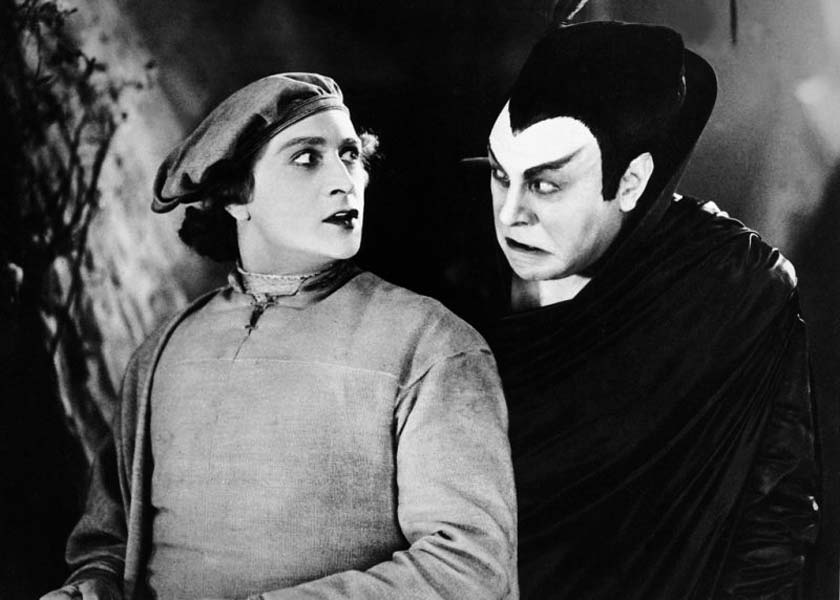Synopsis
Satan brings plague, war and famine to mankind. He claims mankind as his own, but the Archangel proclaims that mankind belongs to God. As proof the angel shows Faust who prays to God and lives a holy life. Satan asserts that he can wrest Faust's soul from God. He proposes a wager to which the Angel agrees. If Satan can destroy what is divine in Faust, mankind will belong to him. Satan offers Faust a pact, Faust's soul in return for youth and his wishes granted. Faust travels the world, and Satan fulfills his every wish. Eventually, Satan realizes that although Faust has tasted all life's pleasures nothing has satisfied him. Faust decides to return to his home.
In his hometown, he sees Gretchen and lusts for her. Satan helps Faust overcome her modesty. Their tryst results in the deaths of Gretchen's mother and brother, and Gretchen's condemnation as a wanton. In the winter snows, Gretchen seeks shelter for her child. She sees visions and buries her baby in the snow. She is condemned to death as a child murderer. Faust races to save her, but he is too late. As she is tied to the stake, Faust denounces his youth that brought her to this end. Satan changes him back into an old man. As the fire burns around Gretchen, the aged Faust goes to her and begs for forgiveness. She looks at him and sees her lover. They kiss as the fire consumes them. In the heavens, Satan tells the angel that he has won the wager. The Angel replies that one word breaks his pact. This word expiates the guilt of man. The word is LOVE.
Discussion
Made in Germany at UFA studios, Faust is a wonderful example of German expressionism. It is filled with striking images. Light and dark are beautifully controlled to contrast good and evil. Jannings uses his face and body to produce a portrait of evil, the seeming benevolent, yet malevolent and manipulating, devil who cheats and injures Faust even as he gratifies him. Ekman and Horn are beautiful looking and emotionally poignant as the doomed lovers.
F.W. Murnau was one of the finest directors of the silent era. Born in Germany, Murnau worked there from 1919 to 1926, directing such masterpieces as Nosferatu, eine Symphonie des Grauens (1922) and The Last Laugh (1924). After Faust, he signed a contract with William Fox and made four films in Hollywood. The first was his American masterpiece Sunrise: A Song of Two Humans (1927), winner of the only Academy Award for Unique and Artistic Picture. His final film was Tabu: A Story of the South Seas (1931). He was killed in an auto accident near Santa Barbara, California, in March, 1931.

